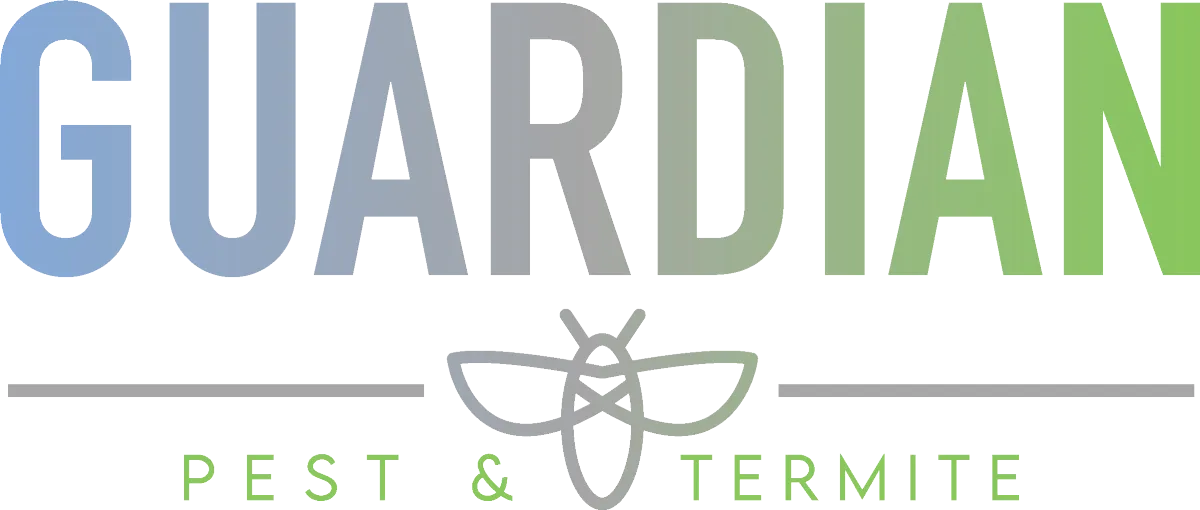Designed to Educate, Motivate & Inspire
The Guardian Journal
Welcome to the Guardian Pest & Termite journal section, your go-to resource for expert insights and tips on pest control solutions. Whether you're dealing with stubborn termites, bothersome rodents, or persistent bed bugs, our journal offers practical advice, preventive measures, and the latest industry updates. Stay informed with our comprehensive guides and learn how to protect your home or business effectively. To learn more contact us, we are here to help you maintain a pest-free environment year-round.

Autumn Pest Preparation: Securing Southern Homes Against Cooler Weather Invaders
Understanding Seasonal Shifts
During the transition into cooler weather, pests such as rodents and spiders alter their behavior, seeking warmth and food inside homes. This makes autumn a critical time for homeowners to bolster their defenses against these pests.
Steps for Home Sealing
Effective home sealing is your first line of defense in pest prevention. This involves:
Inspecting your home thoroughly for any cracks or openings in the foundation, windows, and doors. Even the smallest gap can be an entry point for pests.
Sealing these gaps with appropriate materials such as caulk or weather stripping. This not only prevents pests from entering but also improves energy efficiency.
Checking attics, basements, and crawl spaces for vulnerabilities where pests are likely to enter or nest.
Common Autumn Pests in the South
Here's a closer look at some of the most active pests during the autumn months in the Southern United States:
House Mice: As the temperatures drop, house mice start looking for warm places to nest for the winter. These small rodents can enter homes through gaps as small as a dime, making even well-maintained homes vulnerable. Once inside, they can cause damage by chewing on wires, insulation, and stored items. They are also known carriers of diseases, which can be transmitted through their droppings and urine.
Brown Recluse Spiders: Known for their distinctive violin-shaped marking, brown recluse spiders are particularly prevalent in the South during autumn. They tend to hide in dark, secluded areas of homes, such as basements, closets, and attics. Though they are not aggressive, their bites can cause serious reactions and require medical attention, making it crucial to address any infestations promptly.
Lady Beetles: Often mistaken for the benign ladybug, lady beetles can become a nuisance in the fall when they cluster on the sunny exteriors of buildings seeking warmth. When indoors, they tend to swarm near windows and light sources and can emit a yellowish secretion that stains fabrics and emits an unpleasant odor.
Health Risks Associated with Autumn Pests
Here's an exploration of the health risks associated with some common autumn pests and why timely pest control is vital:
Rodents: Mice and rats are among the most concerning pests due to the variety of pathogens they can carry. Diseases such as hantavirus, leptospirosis, and salmonellosis can be transmitted through their droppings, urine, or saliva, and even indirectly through ticks, mites, or fleas that have fed on an infected rodent. Beyond diseases, rodent droppings can exacerbate allergies and asthma, especially in children.
Spiders: While most spiders are harmless and do not transmit diseases, the bites of some species, like the brown recluse spider, can lead to serious medical conditions. These bites may cause severe allergic reactions and, in some cases, necrotic wounds that require medical treatment. It is crucial to manage spider populations within the home to avoid these health risks.
Lady Beetles: Though generally harmless, lady beetles can cause allergic reactions in some individuals. The allergens are typically spread through the beetles' hemolymph (blood) and can trigger asthma attacks and allergic reactions when the pests are present in large numbers.
The Role of Weather in Pest Behavior
Here’s a closer look at these dynamics:
Temperature Drops: As the warmth of summer fades, many pests, including rodents, spiders, and insects like lady beetles, seek shelter in the more stable environments found inside homes. The cooler temperatures drive them to find warmth and protection against the impending cold, leading them to invade our living spaces more frequently.
Moisture Levels: Autumn often brings increased rainfall or dew, which can attract pests inside homes in search of dry shelter. Additionally, moisture can lead to the proliferation of mold and mildew, which serves as food for many insects, further enticing them indoors.
Shorter Days: The shorter daylight hours of autumn affect the diurnal activity patterns of pests. Many pests that are active during the twilight hours might seem more aggressive as they prepare for winter, rushing to gather food and establish nests within secure environments.
Preparation for Winter: Many pests use the autumn months to prepare for winter, a behavior known as overwintering. This can lead to increased sightings of pests as they actively search for food and nesting sites. This period is critical because it determines their survival during the colder months, making them more noticeable and potentially more disruptive.
DIY Prevention Tips
Here are some practical tips and home remedies that can help keep your home pest-free alongside professional interventions:
Seal Entry Points: Conduct a thorough inspection of your home's exterior and seal any cracks, holes, or gaps with caulk or steel wool, especially around doors, windows, and utility entries. This simple step can prevent pests like mice, spiders, and insects from entering your home.
Maintain Yard Cleanliness: Keep your yard tidy by removing debris, trimming bushes and trees away from your home, and clearing gutters and drains. A clean and orderly yard reduces shelter for pests and minimizes their chances of moving indoors.
Proper Food Storage: Store food in airtight containers and keep your pantry and kitchen areas clean. Dispose of garbage regularly in sealed receptacles. This limits food sources available to pests like rodents and cockroaches, discouraging them from settling in your home.
Use Natural Repellents: Consider natural repellents to deter pests. For example, peppermint oil is known to repel mice and spiders—soak cotton balls with peppermint oil and place them in areas prone to pest activity. Similarly, diatomaceous earth can be used to control insects by sprinkling it around potential entry points.
Reduce Moisture: Fix leaky taps and pipes and ensure that crawl spaces, attics, and basements are dry. Using dehumidifiers in damp areas can discourage pests like silverfish and centipedes, which thrive in moist environments.
Regular Cleaning: Regular vacuuming and dusting help remove food particles and potential nesting materials from your home. Pay special attention to hidden spots, such as under furniture and appliances, where crumbs and debris can accumulate.
Monitor Indoor Plants: While indoor plants can enhance your home’s aesthetics, they can also attract pests. Ensure that potted plants are not overwatered and check them regularly for signs of pest infestation.
Guardian’s Comprehensive Protection Plans
At Guardian Pest & Termite, we understand that each home has unique challenges when it comes to pest control. That’s why we offer tailored protection plans to suit your specific needs. Our plans include:
Regular inspections to identify potential risks before pests become a problem.
Customized treatment strategies that focus on prevention and control, using the safest and most effective methods available.
Ongoing support and maintenance to ensure your home remains pest-free throughout the year.
Don’t wait until pests become a problem. Start preparing your home now by implementing effective sealing techniques and exploring Guardian Pest & Termite’s comprehensive protection plans. For more information and to schedule a consultation, visit our website https://guardianpestsc.com/ and join countless others in the Carolinas who trust Guardian to keep their homes pest-free.
Indian Land, SC Pest Control Journal
Copyright 2024. All Right Reserved.

